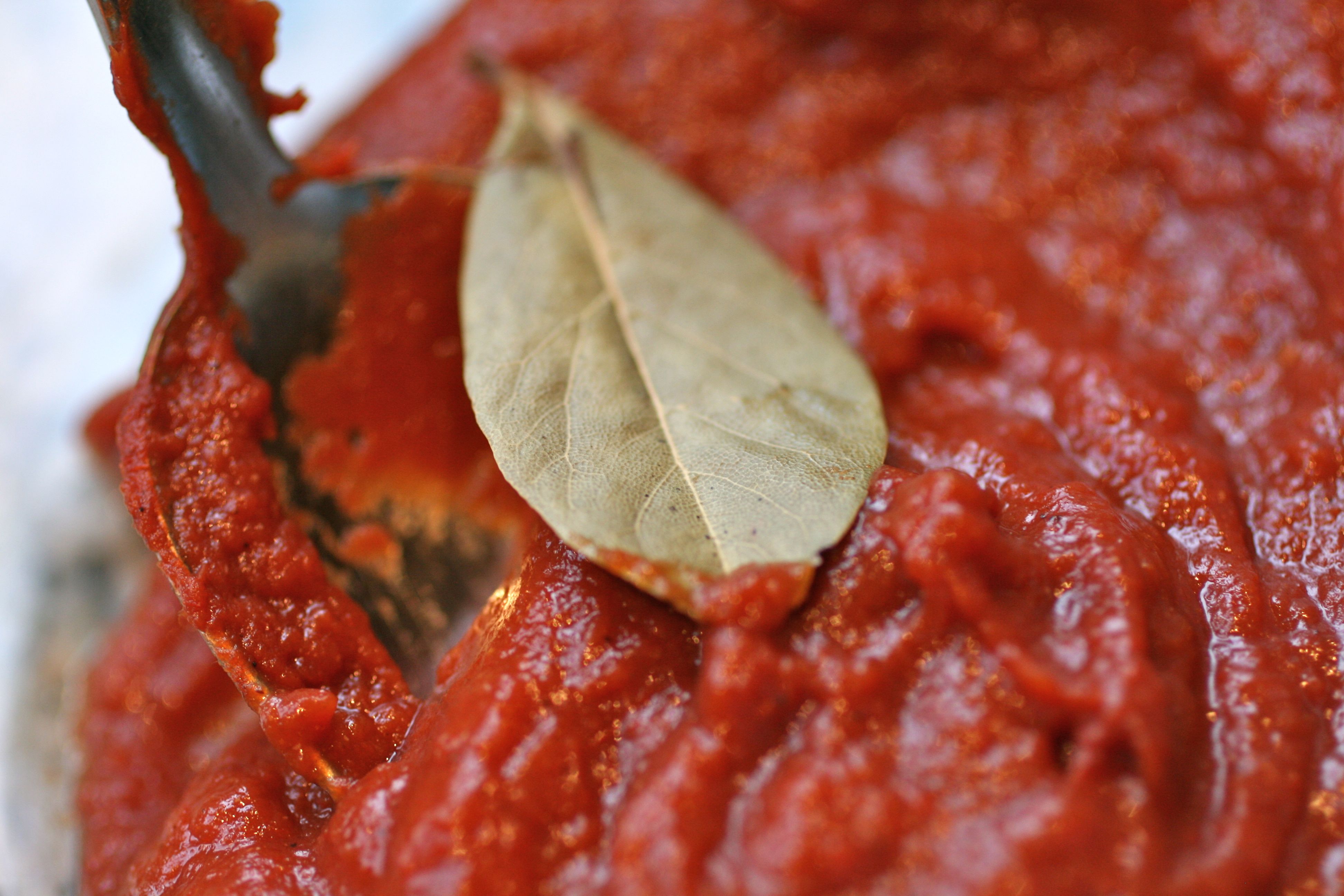When you say the phrase “healthy foods” many people think that this means bland, boring and dry. Unfortunately, they are correct in far too many cases. Many nutritionally-aware folks shy away from sauces and condiments because the varieties lining store shelves are loaded with unwanted ingredients from food dyes to unhealthy vegetable oils to high fructose corn syrup. If you've every browsed the grocery store in search of a high quality condiment, you may understand what I'm talking about: even a simple ketchup can be difficult to find. That's why I want to share this recipe for one of my favorite DIY condiments: Spiced Ketchup. This can be made at home in minutes with simple, healthy, real food ingredients.
Condemned Condiments?
Most condiments aren't made from real foods. This tragic fact becomes obvious with a quick glance at their ingredient lists. Since when does ketchup have more sugar than tomatoes? How is it that most salad dressings contain hard to pronounce components? Did mayonnaise always contain soybean oil? Why do many brands of mustard contain dyes to make them yellow?
Bottled condiments tend to contain neurotoxic additives like sugar-based preservatives, hydrolyzed vegetable proteins and MSG to enhance their appearance and palatability. Sometimes noted simply as “spices” or “natural flavors” in tiny black print on the labels, these sneaky perpetrators aren't always easy to identify either. I've put together a list of How to Find Unwanted MSG, GMOs & Gluten in Your Food to reveal all of the cunning ways that manufacturers try to hide these synthetic ingredients in their products.
If you're tired of going cross-eyed looking at food labels though, it can be time to use a bit of ingenuity and take things into your own hands. Carefully prepared homemade condiments can provide vital nutrients, healthy fats and enzymatic content to enhance the taste and digestibility of a meal. What's more, they are more flavorful than whatever you can squeeze out of shiny plastic bottles and are sure to impress your guests!
Do-It-Yourself Condiments
There are many ways to make your own sauces and condiments, but some prove more beneficial than others. In Nourishing Traditions you will find a large collection of fantastic recipes for carefully crafted, rich additions to your meals. Be sure to experiment with the ones that you like best and be daring in your quest for ideal flavor. The recipe I am sharing today is a favorite at my house and has been adapted from The Naked Foods Cookbook.
I personally use whey to make my homemade condiments so that they lightly ferment. Adding whey provides an extra boost of enzymes and probiotics, and it serves as a natural preservative to enhance the 'shelf life' of homemade items.
Whey is made by straining the probiotic-rich liquid out of yogurt or kefir. Homemade whey has many uses including making lacto-fermented vegetables; soaking and sprouting nuts or grains; or as an additive to smoothies, sauces, stocks and condiments like this ketchup! The process to make whey is simple and uses items you likely already have around the house. I've written about the benefits of whey and how to make it in this post.
Culturing condiments with whey provides all of the benefits of fermentation including enhanced digestibility, increased nutrient content, an added tangy flavor and longer shelf-life. Bear in mind that if you are adding whey and making the fermented version of this ketchup, it takes 2 days to culture. You'll need to do a little meal planning for the week to make sure the ketchup is ready to go before you throw burgers on the grill or stick sweet potato fries in the oven.
I also realize that fermenting is not for everyone. If you aren't keen on the idea of having things fermenting on your counter, don't like the flavor of fermented foods, or are simply crunched for time, the ketchup recipe below is equally delicious when made plain. I've included instructions for making both the original and fermented version below. Enjoy!
Homemade Spiced Ketchup
By Kayla- Radiant Life
1 small onion, chopped fine
1/2 teaspoon ground cumin
1/4 teaspoon ground cloves
1/4 tsp mustard powder
1/2 cup filtered water
pinch of celtic sea salt
4 diced tomatoes (or 28 ounce can drained)
1 (6 ounce) can tomato paste
2 tablespoons unsulphured blackstrap molasses (honey can also work in a pinch)
2 tablespoons apple cider vinegar
1/4 cup homemade whey (optional)
In a medium skillet, add onions, filtered water, cumin, cloves, mustard powder, and sea salt. Saute for 2-4 minutes until onions are translucent. Remove from heat and add to a blender along with remaining ingredients. Blend until smooth.
If fermenting: Remove ketchup from heat, and stir in the whey. Pour ketchup into jars, leaving an inch of space to the top of the jar. Cover and let stand at room temperature for 2 days to culture, then store in refrigerator. Fermented ketchup will keep for several months refrigerated.

